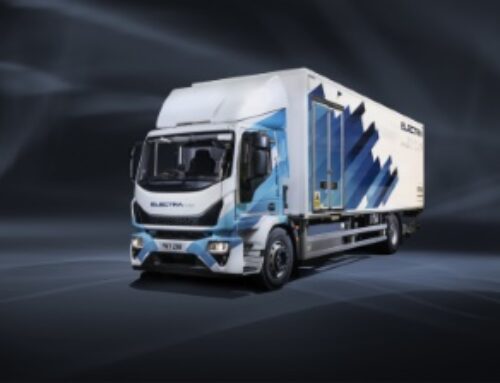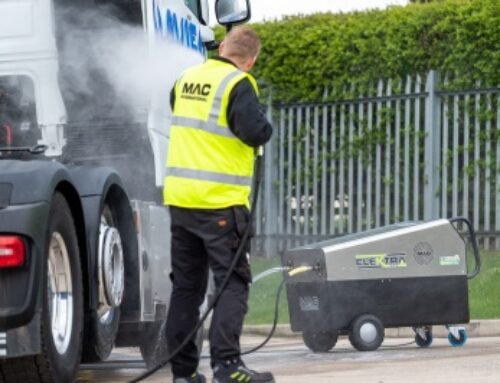A revolution in engine oil
 Jon Wadie, sales director EMEA at Petro-Canada Europe, discusses recent developments in the heavy-duty lubricants sector and their impact on fuel consumption and emissions
Jon Wadie, sales director EMEA at Petro-Canada Europe, discusses recent developments in the heavy-duty lubricants sector and their impact on fuel consumption and emissions
In recent years, HGV original equipment manufacturers (OEMs) have made significant progress in cutting vehicle emissions. A single heavy duty on-highway truck manufactured in 1983 generated roughly the same emissions as around 50 HGVs manufactured in 2013.
Since those improvements, the new Euro 6 standard has been implemented, which aims to increase that number even further with more stringent emissions limits.
Whilst emissions legislation has been tightening, fuel price volatility has created an increased appetite among fleet operators for more fuel efficient vehicles. With approximately 35 per cent of operational costs for fleet operators attributed to fuel, even small decreases in fuel consumption can have a significant impact on business bottom lines.
Combustion consumes fuel to produce energy and in the process generates CO2, CO, NOx and other harmful emissions. Improving the efficiency of combustion therefore not only conserves fuel, addressing end user demands, but also reduces the amount of emissions that are produced, thus helping to meet legislative targets.
As a result, OEMs are responding to legislative developments and end user demands by designing smaller, more efficient HGV engines which run at higher operating temperatures and utilise the latest surface materials to reduce friction in engines.
Engine design is not the only way to improve fuel efficiency of HGVs. Lubricants can also contribute directly by minimising frictional losses between moving components of the engine and also reducing pumping and spinning losses, meaning the work required to move a component through the lubricant. To this end, the industry has seen a growing trend towards lower viscosity engine oils.
By running at higher temperatures, newer engine designs can stress conventional lubricants and accelerate the rate of oil oxidation and degradation.
The end result is that the ability of the oil to protect engine components from wear worsens and the frequency of oil changes is increased – leading to more vehicle downtime and higher maintenance costs. Clearly, this can very quickly negate any cost benefit associated with improved fuel economy.
To address these new technical challenges, next generation engine oils are emerging which are designed to provide greater durability and meet the needs of current and future engine hardware.
Petro-Canada Lubricants has taken this challenge head on, which has resulted in the launch of a new Duron next generation heavy-duty diesel engine oils that couple the latest innovations in oil additive technology with one of the purest base oils to deliver improved oxidation resistance (reducing long term oil degradation), shear stability (known as the ability to maintain stay-in-grade oil viscosity properties under high stress conditions) and aeration control (which is critical in the lubrication of modern high temperature engines).
Taken together, these lubricant design improvements provide enhanced performance, greater hardware protection, and may reduce vehicle downtime.
We see this new era of heavy duty diesel engine oils as not only an opportunity to improve the efficiency and carbon footprint of heavy duty diesel engines, but also a chance to recognise the potential to cut costs and increase profitability.
Duron next generation
Petro-Canada Lubricants’ Duron next generation product line is now available across Europe. Said to deliver a ‘next level’ of durability and performance in the commercial lubricants sector, the range is available in three performance tiers: Duron HP (High Performance); Duron SHP (Super High Performance);  and Duron UHP (Ultra High Performance).
and Duron UHP (Ultra High Performance).
The company says the range has been formulated by combining the best additives with some of the purest base oils. It is claimed to maximise fuel economy without sacrificing engine protection, even in the harshest environments.
“Petro-Canada Lubricants prides itself on delivering on its commitment to ‘toughness’ and has set a new bar of excellence for itself in developing Duron next generation,” said Tony Weatherill, global marketing director, automotive and transportation, Petro-Canada Lubricants.
“The product line is our toughest yet; rigorous testing has put it through its paces to ensure that it is not only meeting the strictest global regulations, but also meets our customers’ needs for better fuel economy, extended drainage intervals and reduced vehicle downtime.
“Utilising the very best of our world-class technology, Duron next generation delivers all this without compromising on durability, strength or efficiency.”
The Duron next generation product line meets global standards for heavy duty engine oil regulations including North American API CK-4/FA-4 standards, Euro 6 and ACEA.











